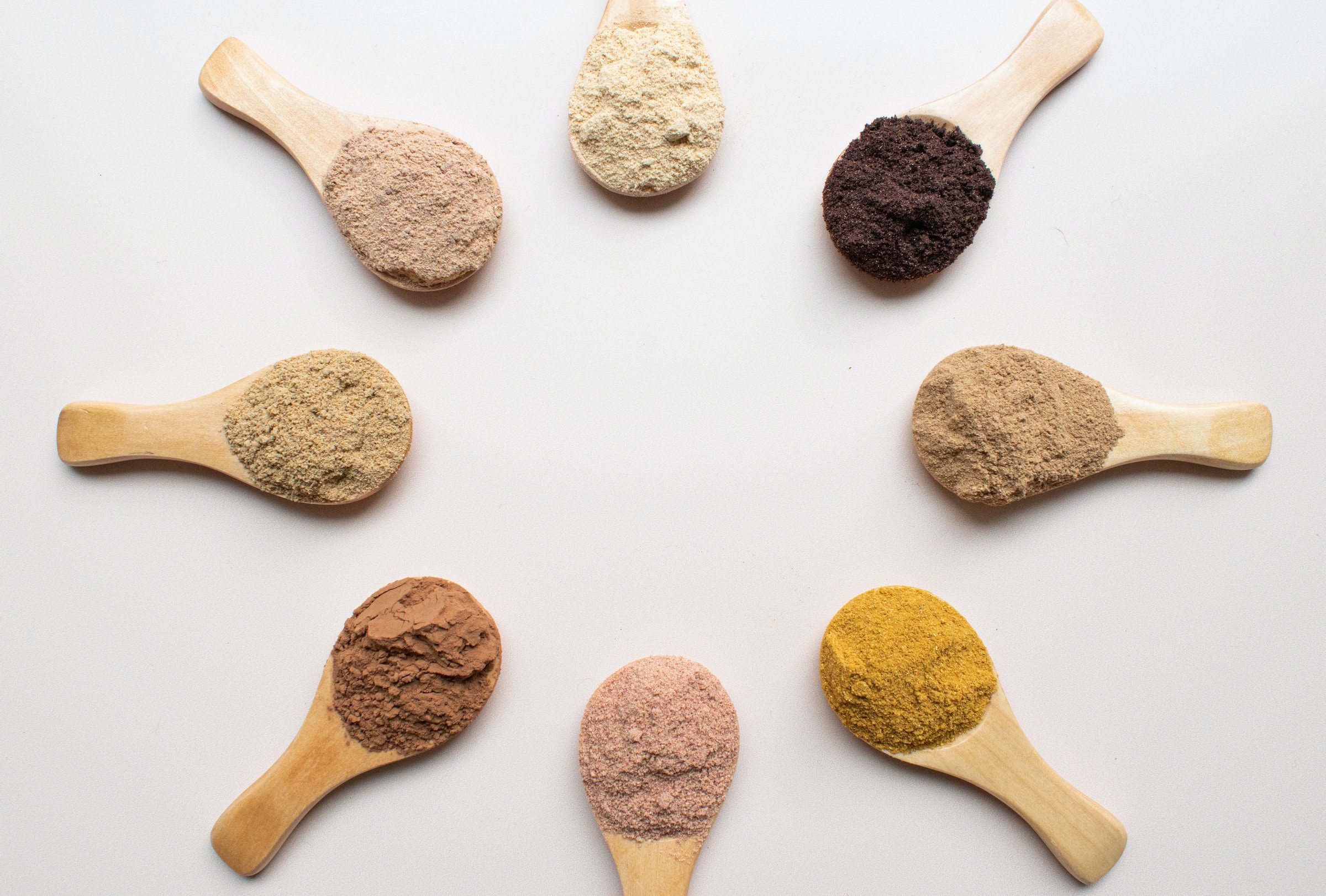The ability of the body to move freely, keep its strength, and even avoid harm is made possible by muscle, which is essential to overall health. Maintaining a healthy diet and an exercise plan that includes resistance training are crucial for maximizing muscle growth, or muscle hypertrophy. Furthermore, whether your ultimate objective is to compete in a bodybuilding competition or simply become stronger and more active in daily life, certain nutritional supplements might help you accomplish desired muscle growth outcomes.
With so many supplements available, it can be challenging to decide which ones are worthwhile, especially when it comes to supporting the muscles. Here is a list of the top supplements for building muscle, as well as advice from professionals on how to build muscle quickly and effectively.
Why Nutrition Matters for Muscle Growth
Gaining and maintaining a healthy amount of muscle mass depends on nutrition. The appropriate nutrients boost your body’s capacity to build and repair muscle tissue in addition to fueling your exercises.
Board-certified physician Nicholas Anastasio, M.D., of Orthopedics and Joint Replacement at Mercy in Baltimore says, “Your muscle tissue can only grow if it has the appropriate building blocks.” “The requirements for the growth of muscle tissue can be met by a balanced diet that provides a variety of nutrients and the right amount of calories. Supplementing with specific nutrients can also assist make sure that your body receives the correct kind of fuel, according to him.
5 Best Supplements for Muscle Growth
Even though each person has different dietary demands, research indicates that many supplements can support muscle development and function. If your fitness objectives involve growing muscle, the following five supplements are worth investigating.
1. Whey Protein Powder
One of the most common types of protein powder, whey protein powder is highly recommended by nutritionists for promoting muscle building. According to Dr. Anastasio, it is a complete protein, meaning it contains all nine of the required amino acids. Many customers also find it to be easily digestible, which makes it a perfect source of fuel for muscle growth.
When ingested in sufficient amounts, whey protein has been shown to positively affect the growth of muscle mass by increasing muscle protein synthesis and decreasing muscle protein breakdown.
The suggested daily protein intake is 0.36 grams of protein per pound of body weight. However, up to 0.45 grams per pound of body weight per day is advised if you consistently strength train, he adds. You can assist yourself achieve your body’s daily protein requirements for muscle growth by mixing a scoop of whey protein powder into your drinks or smoothies.
2. Creatine Monohydrate
According to research, those who engage in brief, intense bouts of resistance training may benefit from taking supplements of creatine monohydrate.
Dr. Anastasio adds that while the body produces a little amount of creatine naturally and it may be found in some meals like red meat and fish, it’s usually only present in small quantities, which is why creatine supplementation is widely used. He continues, “Creatine is typically sold as a powder that dissolves effortlessly in any beverage, like coffee, juice, or water.”
When taking creatine supplements, a person usually starts with a loading phase where they ingest more over a short period to quickly saturate their muscles. The maintenance dose is administered after the loading phase.
The loading phase, which usually lasts five to seven days, is recommended to be supplemented with 0.3 grams of creatine per kilogram of body weight each day. The maintenance phase, which can last from four to ten weeks, is then advised to be supplemented with 0.03 grams of creatine per kilogram of body weight each day.
3. Beta-Hydroxy-Beta-Methyl butyrate (HMB)
According to the International Society of Sports Nutrition, beta-hydroxy-beta-methylbutyrate (HMB) can assist in boosting skeletal muscle growth, strength, and power when utilized in conjunction with exercise. Both older persons and those who are new to fitness can benefit significantly from it.
“HMB is a metabolite of leucine, which means we get it in small amounts through foods that are high in leucine (such as eggs, legumes, oats, and seeds),” explains Abbie E. Smith-Ryan, Ph.D., an assistant professor in the Department of Exercise and Sport Science at the University of North Carolina at Chapel Hill and the scientific adviser for Create Wellness. This company manufactures all-natural creatine monohydrate supplements. The most sufficient dose of HMB is 3 grams daily, however typical diets often contain 0.5 to 1 gram of HMB daily.
4. Essential Amino Acids (EAAs)
Dr. Anastasio explains that amino acids are the building blocks of protein. “When you consume protein, your body disassembles it into the individual amino acids that make up that protein. Then, these amino acids are utilized as the fundamental components in the growth and repair of muscle tissue. There are a total of 22 amino acids, nine of which are regarded as essential because the body is unable to synthesize them on its own. Therefore, Dr. Smith-Ryan continues, essential amino acids (EAAs) must be supplied through food sources, such as poultry, beef, dairy products, and eggs, or supplementation.
According to the International Society of Sports Nutrition, taking 6 to 12 grams of EAAs before and/or after resistance training can increase muscle protein synthesis, while higher doses of 10 to 12 grams of EAAs may be more efficient. The most popular EAA supplement forms are capsules and flavored powders that can be mixed with water or other liquids.
5. Beta-Alanine
By raising the body’s level of the antioxidant carnosine, the amino acid beta-alanine helps muscles work better. In addition to assisting muscles to contract, carnosine also delays the onset of muscular exhaustion during activity, enhancing exercise capacity and performance. According to Dr. Anastasio, research indicates that taking supplements of beta-alanine can boost one-rep max lifting performance. There is a link between beta-alanine and lean muscle, according to other studies. Although beta-alanine isn’t a typical weight-gain supplement, it can make someone train harder, which will increase their lean body mass.
Beta-alanine is a non-essential amino acid, which means the body can make it on its own. However, research indicates that those trying to improve their workouts may find supplementing with 4 to 6 grams per day to be advantageous. It is frequently offered for sale as tablets and powder.
Top Tips for Successful Muscle Gain
Dr. Smith-Ryan adds that the best outcomes typically arise from a mix of a balanced diet centered around whole foods and sufficient protein intake, resistance training, and supplements when aiming to enhance muscle mass and strength. To improve muscle gain and performance, she also advises doing the following:
Be dependable. You must consistently take steps to support muscle growth if you want to gain muscle.
Eat meals in intervals. Additionally crucial are meal timing and eating often throughout the day. Protein should be consumed regularly throughout the day, including before and after exercise.
Be tolerant. You might not immediately see improvements because muscular growth takes time. Be persistent in your goals and be patient. Be aware of your body. While pushing yourself might help you improve, getting enough rest is just as crucial.
Putting sleep first. Consider your sleep because it contributes to both muscle recovery and growth if you’re working out hard and eating right but still aren’t growing muscle. Try to get eight to ten hours of restful sleep each night.
With the appropriate approach to food, exercise, and recovery, along with careful consideration of which supplements may be helpful for you

